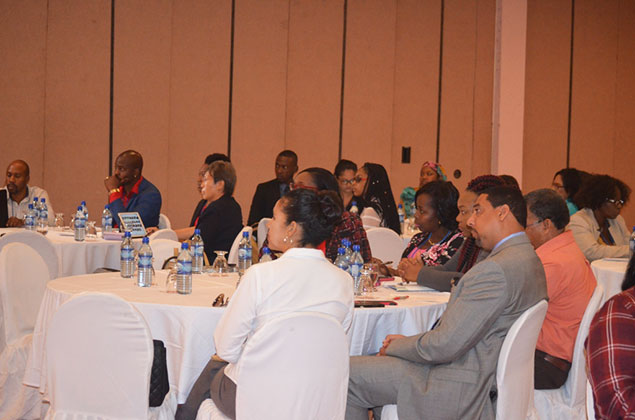Following the execution of a Climate Change Knowledge, Attitudes and Practices survey, the National Climate Change Office (NCCO), in partnership with the United Nations Development Programme’s (UNDP) and Japan-Caribbean Climate Change Partnership (J-CCCP) launched a climate change awareness campaign in Belize on Wednesday, April 26, 2017.
The campaign, which carries the slogan “Feel the Change,” focuses on the changes that one can see and feel in the environment while encouraging Belizeans to Be a Part of the Change.
Community visits to Corozal and Southside, Belize City on April 22 and 24 fittingly coincided with the global celebration of Earth Day. While in the community, the team unveiled billboards and distributed reusable shopping bags as well as solar powered lanterns. The community visits also facilitated climate change knowledge sharing among community members via interactive discussions and games.
The campaign was designed based on the results of a knowledge, attitudes and practices survey conducted by the J-CCCP last year, which was followed by the development of a National Climate Change Communications Strategy. The J-CCCP is also supporting Belize’s National Adaption Plan (NAP) and Nationally Appropriate Mitigation Actions (NAMA) development as well as the implement of a sustainable agriculture and water resources management pilot project in order to advance the process of inclusive low-emission climate-resilient development in Belize.
The J-CCCP is a regional initiative working in eight Caribbean countries, including Belize. The programme of work under the JCCCP is in line with the Paris Agreement on Climate Change, to keep global warming below 2 degrees Celsius and to drive efforts to limit the temperature increase even further to 1.5 degrees Celsius above pre-industrial levels.
Climate change is one of the most serious challenges to the Caribbean, and as such boosting resilience is crucial for the region’s development and is a clear part of UNDP’s global strategic plan of programme priorities. Climate change can contribute to more intense storm systems in the region and negative impacts on land, water resources and biodiversity associated with climate change have also been predicted. Agriculture, fisheries, water and sanitation, human health and coastal resources and infrastructure are all being affected by climate change and require responses at both community and national levels in the region.













